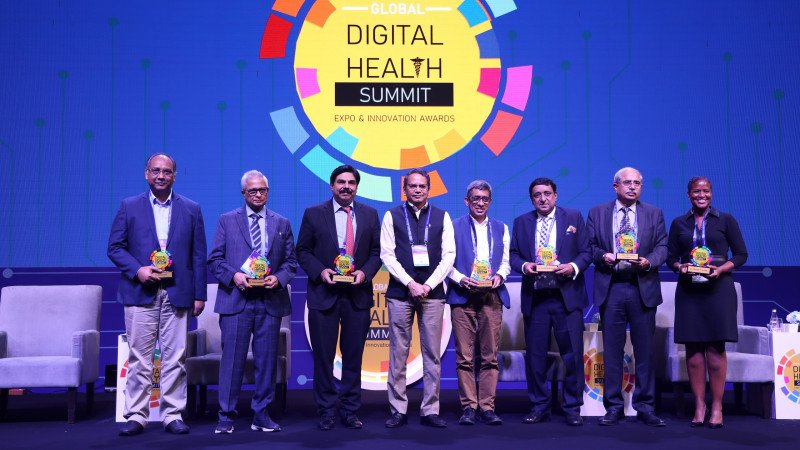The Global Digital Health Summit 2023, hosted by Digital Health Associates, recently concluded, unveiling a dynamic array of initiatives poised to transform the healthcare landscape through digital innovation. This momentous event addressed critical challenges faced by healthcare providers and start-ups in today's rapidly evolving digital healthcare sector.
These transformative initiatives, encompassing the SMART Hospitals' Suite, SMART Clinicians' Suite, Executive Leadership Programme, Neither Share nor Learn Campaign and Feel Something, Do Something Initiative, were introduced during the summit, addressing the key challenges faced by healthcare providers and startups within the rapidly evolving digital landscape.
Speaking on the occasion, Dr Alain Labrique, Director for the Department of Digital Health and Innovation, World Health Organization (WHO) stated that many global healthcare issues can be resolved using digital healthcare tools and by putting a blueprint for the national digital health strategy in place.
Citing the example of Bangladesh, Dr Labrique stated that in some countries the child mortality rates are as high as 30 percent. "Which means that for every 1000 children almost 300 of them die, which is equivalent to a plane crashing every day. These stories are never reported," he said.
He explained that the WHO since the last 20 years have tried to put governments in the driver's seat helping them with digital technology in the broader sense. "We help in the guidance and the guidelines to help them put a national digital healthcare strategy in place. We also encourage all our 194 member states to learn from the successes and failures of each other," he revealed.
The summit's proceedings were graced by influential figures, including Shri Piyush Goyal, Union Minister of Commerce & Industry, who underscored India's thriving start-up ecosystem and its potential to address global healthcare challenges. He highlighted the pivotal role of digital healthcare in achieving Prime Minister Narendra Modi's vision of universal healthcare access.
"India has a thriving start-up ecosystem, which is the third largest in the world has an immense potential to tackling pressing healthcare challenges on a global scale. The rise of digital healthcare holds the key to addressing healthcare accessibility issues—a mission that aligns seamlessly with Prime Minister Narendra Modi's vision of healthcare for all," he said.
He explained that machine learning has a huge potential and is revolutionising healthcare diagnostics, ensuring the delivery of high-quality. "India has also launched the world's largest healthcare insurance scheme, Ayushman Bharat which is a new benchmark in the healthcare space," he pointed out.
Dr Devi Shetty, Chairman & Executive Director of Narayana Healthcare stated that within next five years India will be able to provide quality healthcare to every citizen regardless of his or her financial status.
"Two important enablers in this direction are digitisation of healthcare and universal health insurance. Digitisation will help provide quality care to the patients wherever they are regardless of what time of the day it is. Smart software will enable smart diagnosis. At some point it may become legally mandatory for the doctors to take a second opinion of the software before starting the treatment," he said.
According to Dr Shetty, even in the most developed country like US one in two hundred patients admitted to a hospital die due to medical error. "That is mainly because of poor communication. We are working on systems that will provide diagnostic reports to the doctor on his mobile as soon as the test is done. This will save lives," he pointed out.
Dr Shashank Joshi, President, India Academy of Diabetes, Ex- Chair, International Diabetes Federation stated that India has the highest number of diabetes cases in the world with 101 million suffering from the same. "Though, diabetes care with the discovery of Insulin happened more then 102 years ago, the technology adopted for the same was very skewed. With the Covid pandemic, the technology adoption accelerated," he said.
He stated that using digital tools like AI, it is possible to create a digital model and create customised solutions for the patient. "We can use precise therapy with the era of evidence-based medicine now in place. You can pick the data, analyse the same and give solutions for individual patients," Dr Joshi explained.


